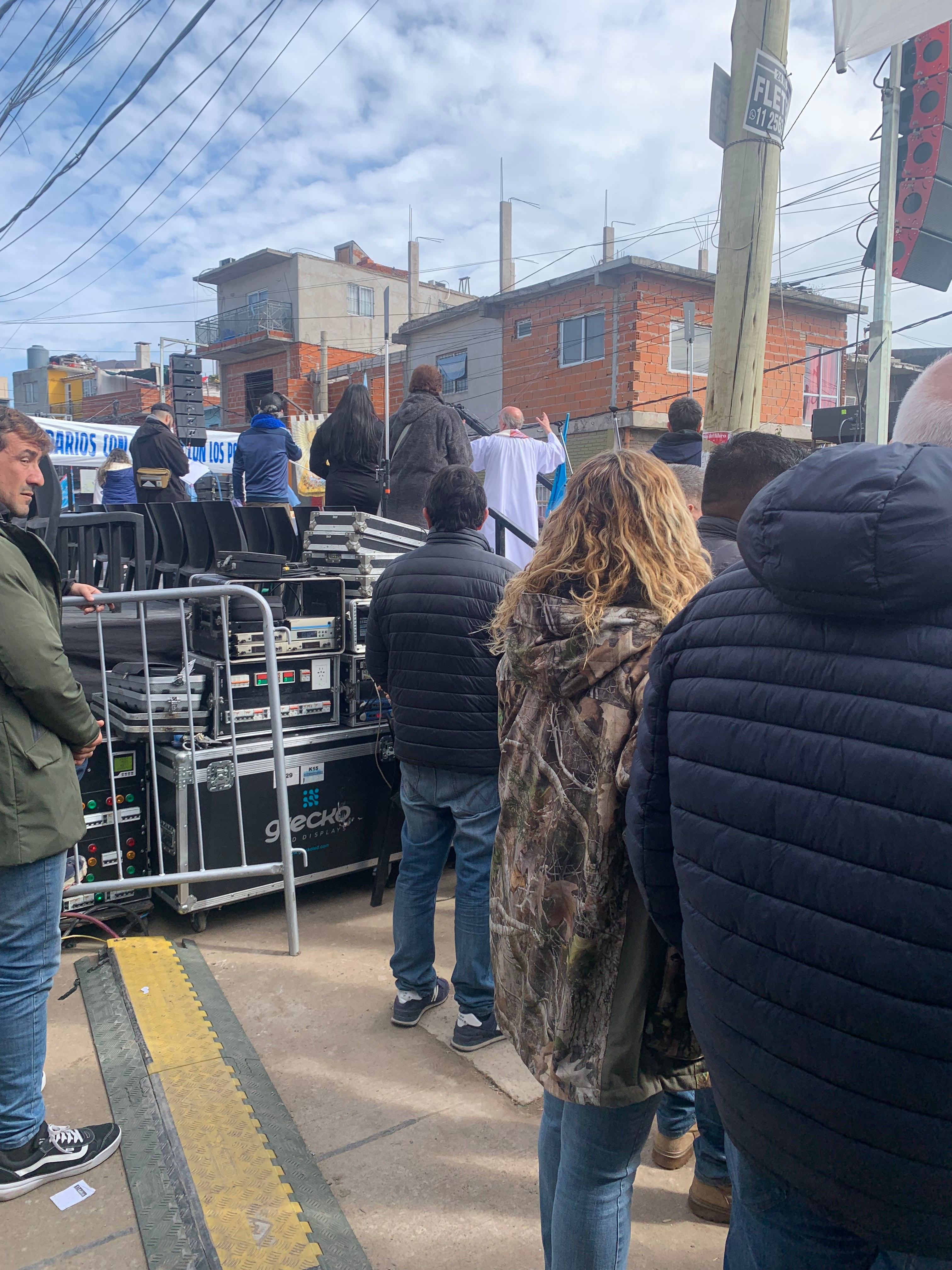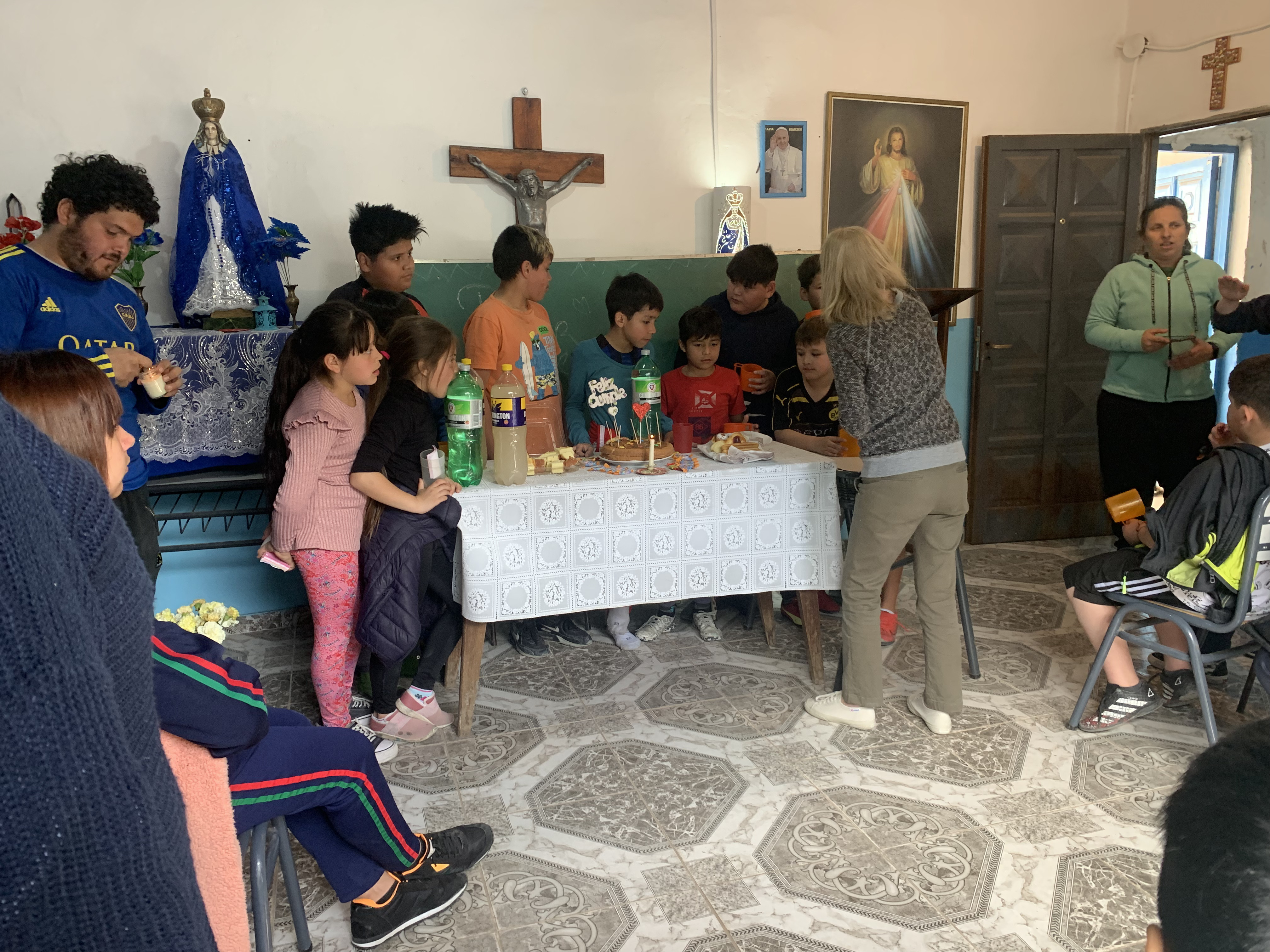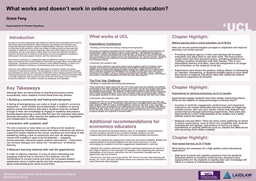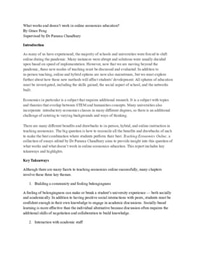My original leadership-in-action plan involved incorporating research from my first summer (best practices in online teaching) into an in-person teaching project to explore whether these techniques were transferable across types of classrooms. I’d also done a lot of prior research on education in Argentina and had further reports planned on its economic and political conditions. This experience was meant to combine several of my interests, and I had high expectations.
More than half of all people in Argentina live below the poverty line, with 75% of the population in one of the largest countries in the world congregated in Buenos Aires. This resulted in a central city, but instead of suburbs, there exists established slums, or “villas miserias” in Spanish. They were originally occupied by migrants who intended for their living situation to be temporary, but so settled are these slums now that they are numbered by the government and distinguished by purpose and personality.
A charity that matches volunteers to classrooms agreed to host me, and was very supportive of my goal of creating lesson materials and sharing it with other teachers to leave something behind after my project.
My objectives were to apply last summer’s research on pedagogy, with a metric of success being the kids’ retention of English vocabulary words throughout the weeks. However, the reality of my project did not meet my initial expectations at all.
There are so many articles on the economic conditions and current events in Argentina, but my experience was completely different to what one would read on a screen. Although most Argentinians I met were spirited, affectionate, and lovely, there was a general feeling of hopelessness in the atmosphere. The inflation had more than doubled within my first two weeks there, major protests were happening every week, and a right-wing extremist had an increasingly larger lead in the presidential polls. It was also quite disheartening to see such a stark divide every day just taking the bus from the city to the school. Something that shocked me especially was the fact it now took most Argentinians more than 7 years to finish an undergraduate degree since they needed jobs concurrently. I felt I was certainly taking my education for granted.

My classes were not productive either. Something I hadn’t counted on was the fact that the kids simply did not want nor feel the need to learn English. Although English was required at schools due to a growing tourism sector and globalization, the kids going to school in the slums had more critical things for which to dedicate their time. This also resulted in an increasing education gap between the class divides. During recess I liked to teach the kids paper crafts instead, and they were a lot more receptive to having something colorful to bring home.
One especially memorable hurdle was watching a math teacher write 15^2 = 30 on the board for all the kids to eagerly copy down. I was so startled, I felt completely at loss as to what to do or think. The moment passed, and I was leaving in a few days. I could only bring it up to the charity I was working with later, but nothing was really done and I felt quite useless and disappointed that I was not acting on my past leadership training to speak up.
However with further reflection, I did get to learn about and practice leadership. It was just not in a way that I’d planned for it to happen. Throughout the 6 weeks, I felt that I could have done more for the kids. They worked so hard and were so enthusiastic about their education, but the adults responsible for it were failing them. This theme was evident throughout Argentina — the people and culture are so vibrant and special, but they struggle to survive in a failing system.
As I look at the good-bye drawings from the kids hanging on my wall and the paper hearts I taught them how to make, I like to think that I did make an impact on the kids, however intangible. I think my expectations for what I could personally do were too high. The role was meant to alleviate symptoms of the education problem, not fix it. The solution needed to come from the institutions, which is why ethical and trustworthy leadership from all levels of the system was important.
Additionally, my view on leadership has evolved since the beginning of the Laidlaw program. I’d always thought that being ambitious, brave, curious, and determined were silos separate from the additional trait of good leadership. There was a threshold to meet for good leadership, and that could only be achieved by being put in a position of authority. However, my experience in Argentina has taught me that these traits were different aspects of leadership. You can strengthen each of these traits separately, and it can be transferable to a situation where you do end up in a position of leadership.
Looking back, I did get to work on being ambitious, brave, curious, and determined throughout my trip, leaving my comfort zone by practicing my terrible Spanish with locals or taking tango classes by myself. I have noticed that I get to be a better leader in London because I’ve gotten practice with setting ambitious goals, speaking up for myself, and being curious with unorthodox solutions, things I tended to shy away from.
Things don’t always go according to plan, and that should be embraced. I’ve learned that the most unexpected situations and mistakes make the best teachable moments. The charity, the kids, and the other volunteers taught me a lot more than what I planned to teach, and I really appreciated seeing their resilience and determination every day. My project has given me such a versatile and important toolkit, and I’m looking forward to accepting their invitation to go back some day.

to celebrate everyone’s birthday, and I got
to participate on my last day!


Please sign in
If you are a registered user on Laidlaw Scholars Network, please sign in